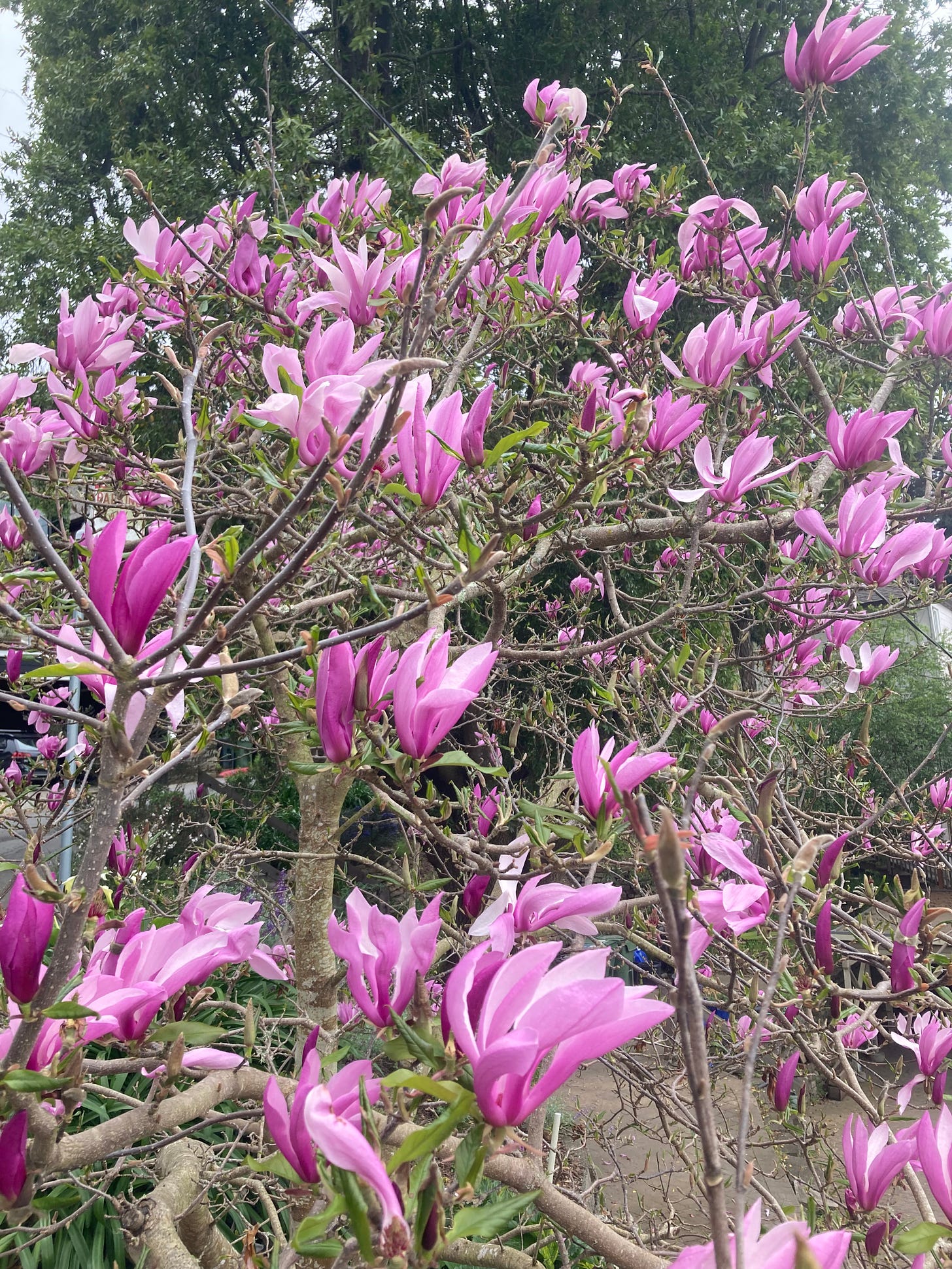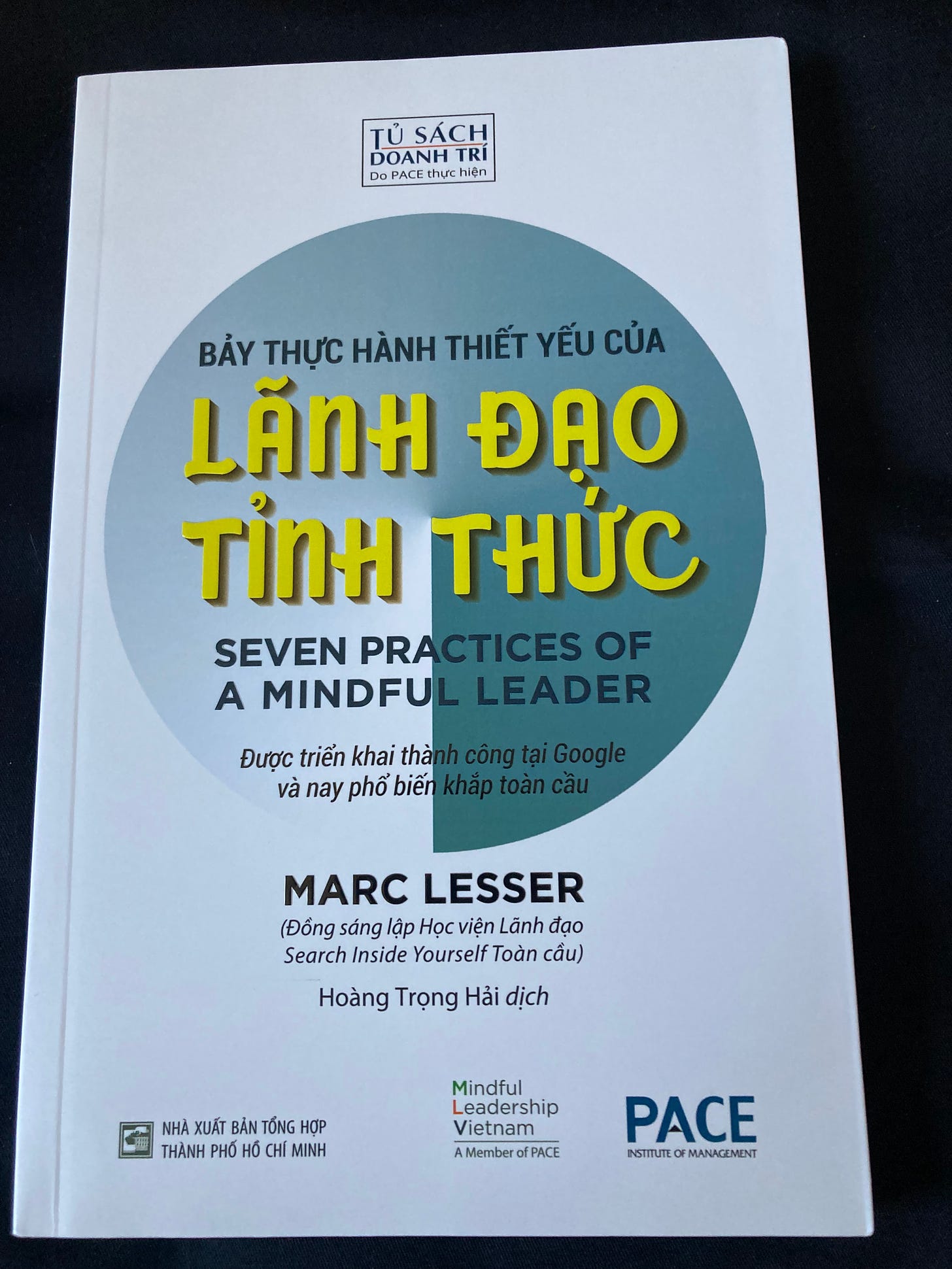A Poem That Touches Me Today
In this issue:
· Insights Into Practices: Belonging
· My Favorite Fact This Week: The Bar-Tailed Godwit
· Seven Practices Of A Mindful Leader, In Vietnamese
· One Half-day Retreat
Insights Into Practices: So Much To Admire and Weep Over.
It’s been a full, rich, and intense week. I’m grieving over the unexpected death of a young woman friend; a hiking accident. At the same time, I’m grieving and celebrating the loss of another close friend who died in London several months ago. On Sunday I helped hold space for family and friends in Los Angeles to celebrate her life.
I gave the Saturday morning public talk at the San Francisco Zen Center this week and began by reading this poem, by Mary Oliver, called The Fourth Sign of the Zodiac. See if you can slow down enough to take it in, hear each word, each line, as though it were an offering or a gift, a gift to support your wellbeing:
“I know, you never intended to be in this world.
But you’re in it all the same.
So why not get started immediately.
I mean, belonging to it.
There is so much to admire, to weep over.
And to write music or poems about.
Bless the feet that take you to and fro.
Bless the eyes and the listening ears.
Bless the tongue, the marvel of taste.
Bless touching.
You could live a hundred years, it’s happened.
Or not.
I am speaking from the fortunate platform of many years,
none of which, I think, I ever wasted.
Do you need a prod?
Do you need a little darkness to get you going?
Let me be as urgent as a knife, then, and remind you of Keats,
so single of purpose and thinking, for a while,
he had a lifetime.”
(I had to look up the reference to Keats: He died of tuberculosis at age 25. When he was 8, his father fell of a horse and died. His mother died of tuberculosis when he was 14 and he lived with his grandmother.)

Three themes in this poem stand out to me:
Belonging – Feeling alone and separate are easy. Belonging, is our innate place and gift. Belonging seems to require practice, awareness, and taking time.
I’ve been reading Thich Nhat Hanh’s Zen and the Art of Saving the Planet, and appreciate his words about belonging and love:
“If we look with the eyes of non-duality, we can establish a very close relationship between our heart and the heart of the Earth. When we can see that our beautiful Earth is not inert matter but a living being, right away something is born in us; some kind of connection, a kind of love. We admire, we love the Earth and we want to be connected.
That is the meaning of love, to be one with. And when you love someone, you want to say I need you. I take refuge in you. It’s a kind of prayer, yet it’s not superstition.”
This feels like belonging.
So Much To Admire and Weep Over – Admiring and blessing everything, is so obvious, and yet, easy to forget or not pay attention to. And weeping, more and more feels like a very close cousin of admiring and blessing.
Don’t Wait – “You could live a hundred years, or not.” There is something about this contrast, and the power of the words “or not.”
Practice
· Take time to be with this poem, to explore belonging, letting go of not belonging. Try on as Thich Nhat Hanh suggests, “look with the eyes of non-duality” beyond belonging or not belonging.
· Practice appreciating this life. Take time. Take even more time. Relax, chill, see what happens without extra effort.
· Be wary of putting things off. What matters today, now?
My Favorite Fact This Week
I was reading that brains of birds have a lot in common with human brains. And, that there are some things they can do that our human brains are incapable of. For example, I read in this week’s NY Times Science Section that bar-tailed godwit flies 7,000 miles from Alaska to New Zealand in eight days of continues flight. During this time, one hemisphere of its brain can sleep while the other hemisphere is awake. Perhaps someday we humans will evolve to perform this feat!
And, 7,000 miles of flight. Wow!
Seven Practices of a Mindful Leader: Lessons From Google and a Zen Monastery Kitchen, in Vietnamese

I just received this copy of Seven Practices, translated to Vietnamese. Something magical about books, helps me appreciate the art and privilege of writing and publishing, and how books can spread and influence, in very unexpected places.
And, my books, in English can be found here.
Half Day Retreat, In-person and Online, Sunday April 7th
9:30 a.m. – 12:30 p.m., in Mill Valley, CA
In our world of busyness, of more/faster/better, this half-day retreat offers time to stop, reflect, and renew. We will explore the practices of effort and effortless as a path to well-being and “stepping into your life.”
Together we’ll follow a gentle schedule of sitting and walking meditation, a talk, and some discussion. Anyone looking to begin or deepen a meditation and mindfulness practice is invited to attend.
What is meditation? I like a definition proposed by Zen teacher Dogen, the 13th century founder of Zen in Japan: “The practice I speak of is not meditation. It is simply the dharma gate of repose and bliss…It is the manifestation of ultimate reality…Once its heart is grasped, you are like a dragon when he gains the water, like a tiger when she enters the mountains.”
